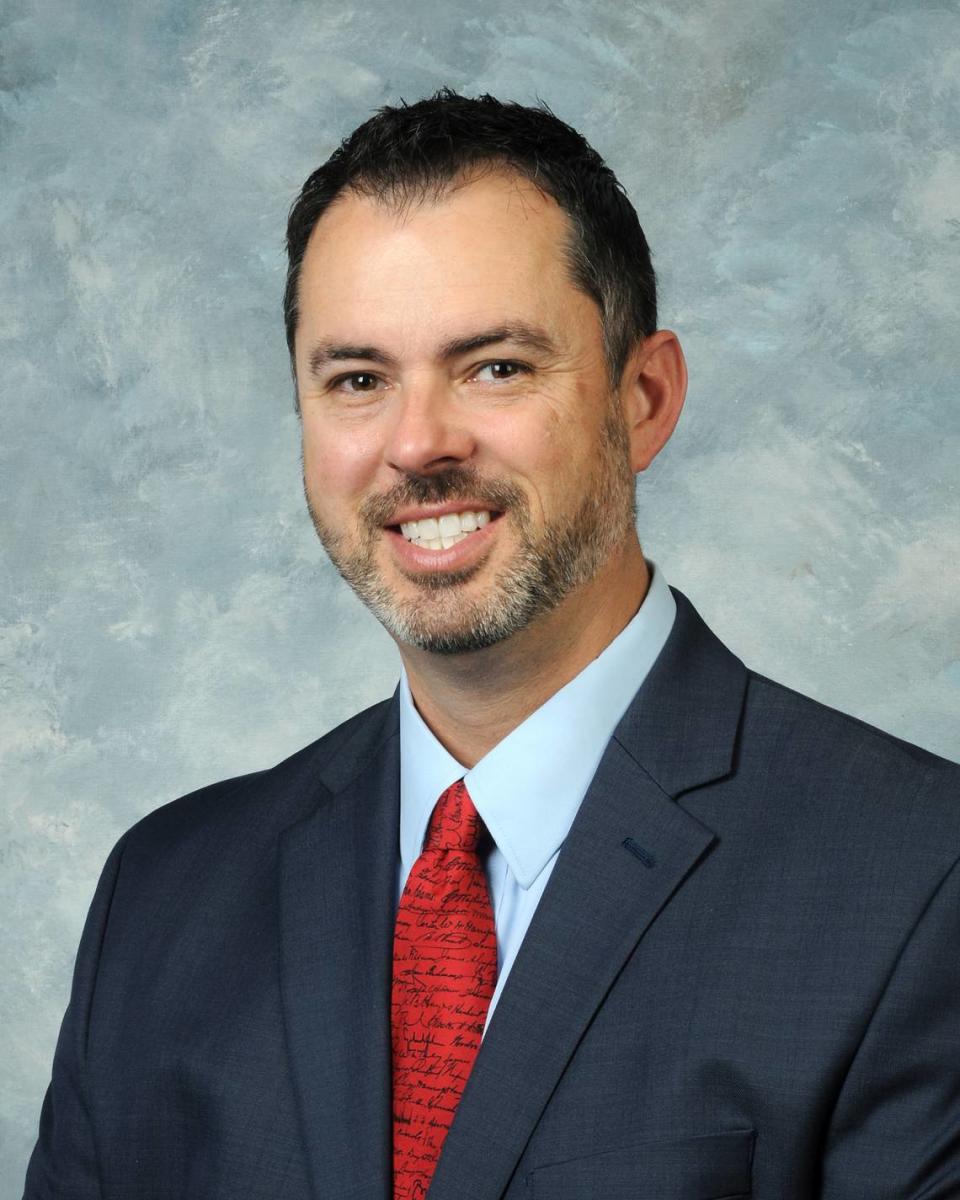New bill would deal with concerns Kentucky is paying for other states’ addiction treatment
State lawmakers have moved to deal with a concern that some drug-treatment facilities in Kentucky are adding to Medicaid costs and homelessness through a practice of bringing in clients from out of state.
Seven House Republicans filed a bill Tuesday that would bar residency status — and therefore Medicaid eligibility — to someone who came to Kentucky solely to establish residency and be covered under the program funded by taxpayers.
“We have to make sure that we’re being responsible with the tax dollars that we’ve been given” to serve Kentucky residents, said Rep. Shane Baker, R-Somerset and the primary sponsor of the bill.
The concern behind the measure, House Bill 408, is that some substance-abuse recovery facilities have recruited clients from Tennessee and other states to come to Kentucky and enroll in Medicaid, allowing the facilities to be paid for services.
Officials in Somerset and Elizabethtown told the Herald-Leader some recovery residences, also called sober living houses, have engaged in that practice.
Baker said he had heard from legislators and others that that is an issue in other places in Kentucky as well.

In addition to increasing costs under Kentucky Medicaid, bringing in clients from other states also adds to homelessness in Kentucky, officials said.
That’s because the recovery facilities don’t provide transportation home for clients if they drop out or are expelled for an infraction.
And directors of food pantries in Somerset and Elizabethtown said sober living houses have added to the demand for emergency food aid because the facilities don’t provide food for clients, leaving them to rely on the pantries.
At the request of Mayor Alan Keck, the Somerset City Council approved a resolution Jan. 22 asking state lawmakers to bar recovery facilities from recruiting and transporting clients from other states in order to get them covered under Medicaid here.
Kentucky residents “should not be burdened with treating clients from other states,” the resolution read in part.
Baker said some recovery facilities are truly trying to help people battling substance abuse, but some are only interested in making money, often without providing good-quality services.
Under the bill introduced this week, out-of-state residents who came to Kentucky for treatment but failed to establish residency would be fined and required to reimburse Kentucky Medicaid for any money spent on them.
Another provision would require recovery facilities to provide transportation back to a client’s home if he or she left the program voluntarily and a family member or guardian didn’t agree to pick up the person.
Yet another provision would require recovery facilities to check whether potential clients had outstanding criminal warrants before admitting them.
Baker said constituents have expressed concerns to him about problems related to sober living houses in neighborhoods, including drug use and breaking into cars.
“They’re concerned about the safety and welfare of their families,” Baker said of people who have contacted him.
The co-sponsors on HB 408 are Josh Bray of Mount Vernon; Josh Branscum of Russell Springs; Ken Upchurch of Monticello; David Meade of Stanford, who is in House leadership; Kimberly Poore Moser of Taylor Mill, who chairs the Health Services Committee; and Matt Lockett of Nicholasville, who represents parts of Jessamine and Fayette counties.
Several provisions in Senate Bill 71, filed by Sens. Phillip Wheeler, R-Pikeville, and Jimmy Higdon, R-Lebanon, mirror those in HB 408.
Sign up for our Bluegrass Politics Newsletter
A must-read newsletter for political junkies across the Bluegrass State with reporting and analysis from the Lexington Herald-Leader. Never miss a story! Sign up for our Bluegrass Politics newsletter to connect with our reporting team and get behind-the-scenes insights, plus previews of the biggest stories.

